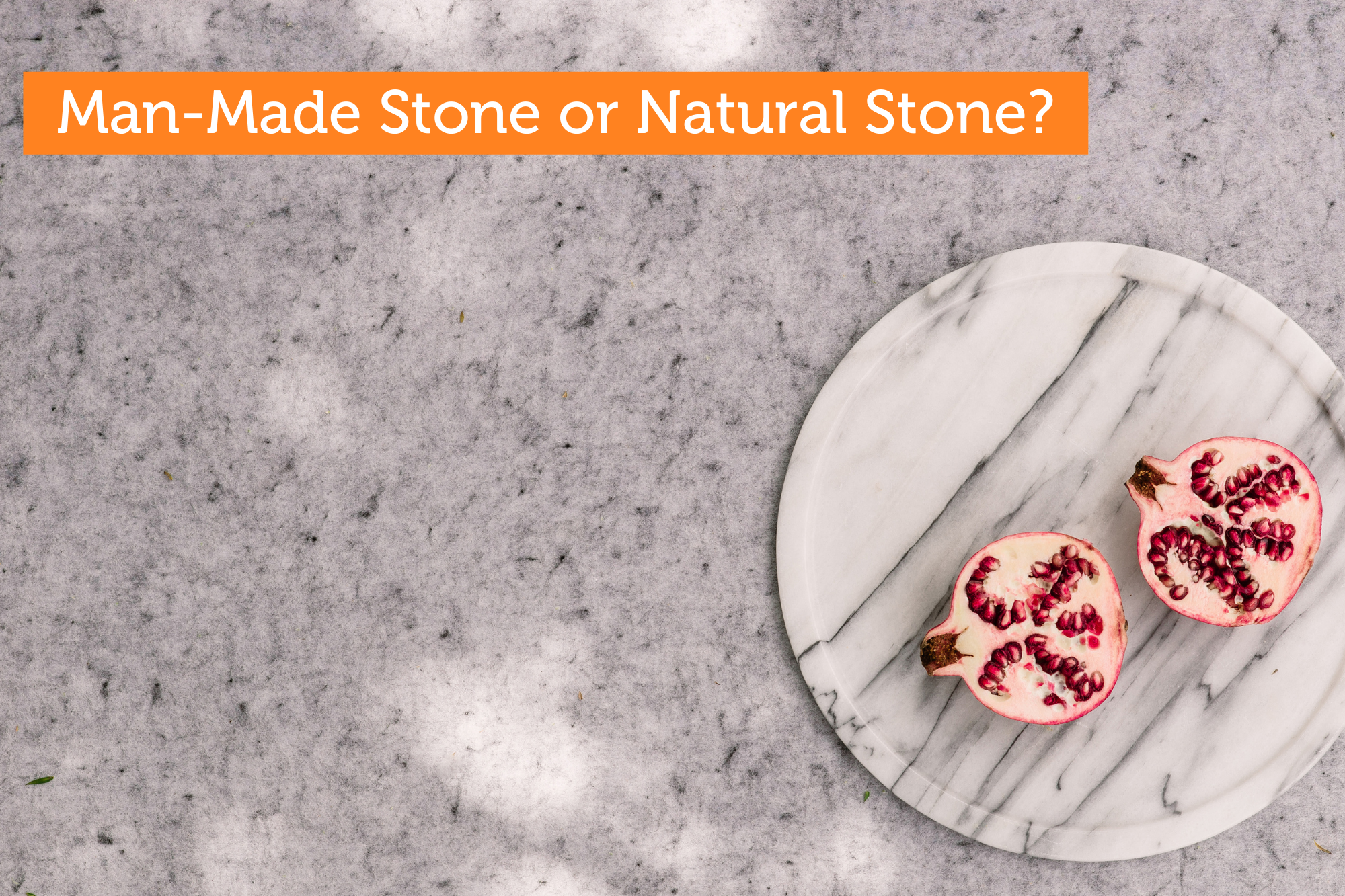C&G’s Guide: Should I Use Man-Made Stone or Natural Stone in My Home?
When selecting the material for your countertops, splashbacks, walls or floor, you’ll often come face to face with the conundrum: do you choose natural stone or man-made stone?
Aside from something that looks aesthetically beautiful in your home, you’ll want to invest in a product you know is durable, suited to your environment and your budget. In this C&G blog, we look at the differences between natural and man-made stone and discuss the pros and cons of each, so you can know which is right for you.
What is Man-Made Stone?
Otherwise known as engineered stone, man-made stone refers to a product that is manufactured to look like the real deal. First developed in the late ’80s, it’s created using natural stone aggregates, resins, and colourants. It’s worthwhile noting that the primary ingredient of most engineered stone is quartz—a highly durable mineral.
The Benefits of Man-Made Stone
It’s Resilient and Hygienic:
Thanks to the strength and durability of quartz, man-made stone benchtops are very resilient against scratches, chips, and stains. This can make it an ideal choice for a family, where these areas are likely to be infrequent use.
Furthermore, when compared to the more porous natural stone, engineered stone is generally considered more hygienic for use in areas where liquid and water is likely to be spilt. This makes man-made stone benchtops a great choice for both kitchens and bathrooms.
Customisable:
Man-made stone is manufactured by machinery with set ingredients and consistent processes, unlike natural stone which varies significantly. This means that the size and shape of your benchtop can be more easily customisable, and not dependent on the size of a natural slab extracted from a quarry. Of course, maximum size limits will vary between manufacturers, as well as style options and colours.
Environmental Factors:
For those environmentally conscious home designers, man-made stone benchtops offer a greener option. This option requires significantly less energy compared to that required to extract and manipulate natural stone. So if sustainability is a high priority for you, this is the way to go.
Price:
In most cases, man-made stone will be cheaper than natural stone, given the materials required to make it are far more accessible than finding the perfect piece of stone in nature to suit your needs.
The Cons of Man-Made Stone
Reduced Lifespan:
Over time the binder that holds engineered stone together can loosen, causing the material to degenerate and require replacement. Though this does generally take quite a long time, this process can be accelerated if the counter is exposed to prolonged sunlight or heat sources. For this reason, it should never be used in an outdoor setting.
Uniformity of Appearance:
While man-made stone comes in a variety of designs and colours, like any manufactured product it will appear uniform when compared to natural substances. Depending on your tastes, however, you may prefer a more uniform look compared to a more organic style that features colour variation and fissures.
Lower Perceived Value:
Many people view natural stone as a more premium product compared to engineered stone, so when it comes to the resale of your property, this is a factor you may want to consider.
What is Natural Stone?
As the name suggests, this product is formed and found naturally in the earth and includes marble, quartzite, granite, limestone slate, sandstone and travertine amongst others. In modern homes, you can find natural stone throughout bathrooms, kitchens, living rooms, fireplaces and outdoor pools. Natural stone must be quarried with skill and transported with care, and each piece will be unique in its pattern and colouring.
The Benefits of Natural Stone
It’s a Premium, Unique Product:
Real stone has a truly natural beauty that makes every space completely unique. The exact pattern of veining and shading will be exclusive to that specific piece, which makes natural stone perfect for customising a look and creating a luxe interior.
Hardiness:
Natural stone is a hardy and tough material. When used as a kitchen or bathroom benchtop, it proves to be both long-lasting and resistant to the most frequent of scratches and chips. Additionally, when resealed properly and regularly, natural stone is also resistant to staining from spills, especially when cleaned up quickly.
UV Resistant:
Unlike man-made stone, natural stone has a naturally higher resistance to UV, which makes it the best choice for outdoor areas. Like stone found in nature, natural stone has evolved in prolonged, intense sun exposure - particularly in Australia! - and has adapted to such conditions.
The Cons of Natural Stone
It Can Be More Expensive:
For many people, one of the major deterrents from using natural stone is the typically higher price point. There is much more work involved in producing high-quality stone pieces, compared to engineered stone which is much easier to mass-produce.
It’s More Porous:
While natural stone is scratch-resistant, it is by no means scratch proof. In fact, compared to engineered stone, natural stone is quite porous, so requires more maintenance. Regular cleaning and resealing are important to maintain their luxurious aesthetic. However, while porous, it’s still generally very heavy, so you should always ensure you have the necessary structural reinforcement to bear the slab’s weight.

